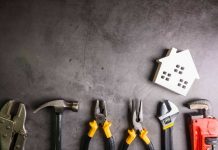
Being a homeowner can be daunting, that’s for sure! Thankfully, it doesn’t need to be that way! As a homeowner, you want to make sure you have important information on what it means to make the most out of your home. The best way to do that will depend on your personal situation. However, there are general rules of thumb that people wish they knew when it comes to home management, that can make a world of difference.
Tips That Most Homeowners Should Know
We know we may sound like a broken record, but you want to keep in mind that the best way to handle your home may not be the best way for another home! So you want to keep that on the backburner as you go through this list. Some ways to save as a homeowner includes:
- Regular Maintenance Tasks
- Getting Insurance Policies
- Keeping an Eye on on Gutters and Water Heaters
- Focusing on Energy Efficiency
Regular Maintenance Tasks for New Homes
Don’t forget about the boring but necessary maintenance tasks that come along with homeownership. There are some maintenance tasks that you want to stay on top of!
How Important It Is to Change Air Filters Every Quarter
Air filters work hard to keep dust and allergens out of your living space. Neglecting to change them regularly can cause clogging with debris, thus reducing their efficiency and straining your HVAC system. Plus, a dirty filter can put strain on your HVAC system, leading to costly repairs. So, don’t be lazy – change your air filters every three months.
How Cleaning Refrigerator Coils Can Save You Money
Did you know that dirty refrigerator coils can lead to higher energy consumption and more expensive utility bills? It’s true. Cleaning your coils regularly will help maintain efficiency and save you money over time (in fact, upwards of 30%!).
Getting Insurance Policies
This knowledge ensures you’re adequately covered should anything go off the rails within your first year. Let’s take a deeper look into this.
Difference Between Homeowner’s Insurance and a Home Warranty
Homeowner’s insurance covers damage or loss due to theft, fire, or certain natural disasters. On the other hand, a home warranty provides coverage for breakdowns of systems and appliances in the house that are due to regular use.
When going through your policies, you want to do a few things:
- Get familiar with policy terms: Understanding professional wording like ‘deductible’, ‘premium’, etc., can help you grasp what each policy offers.
- Analyze coverage limits: Knowing how much coverage each policy provides will help determine if it meets your needs.
- Evaluate exclusions: These are situations where the insurer won’t provide coverage. Make sure these don’t include any deal-breakers for you.
Understanding these differences helps ensure that when something breaks down or requires major repair within your first year as a homeowner, you’ll know which protection plan applies. This leads to saving time, money, and stress in an already stressful situation. Be sure to examine your policies thoroughly so you’re not caught unaware and are properly safeguarded.
Keeping an Eye on on Gutters and Water Heaters
Maintaining your water heater and gutters is an essential part of preserving the value of your home and saving in the long run.
Life Expectancy of a Water Heater and Its’ Potential Risks
The average life expectancy of a water heater is about 10 years, give or take. If you don’t know the age of your unit, check for a manufacturer’s sticker that should list the model year. Keeping tabs on this can help prevent unexpected breakdowns or potential risks like leaks which could cause significant damage.
Importance of Clearing Gutters for Preventing Blockages
Gutters are another area that requires regular attention. Over time, leaves and other debris can build up causing blockages that may lead to internal water damage if not cleared out regularly.
Regular maintenance of these two areas can help preserve your residence and save you money by avoiding expensive repairs in the future.
Focusing on Energy Efficiency
To cut down on your energy costs, consider implementing some efficient practices at home such as:
- Tune-up your HVAC system: Regular maintenance ensures it operates efficiently, reducing energy consumption significantly.
- Unplug unused electronics: Even when not in use, they consume power known as “phantom load.” Unplugging them can save around $100 per year!
- Install solar panels: Though the initial cost might be high, over time it usually pays off by reducing your electricity bill drastically.
- Upgrade to eco-friendly appliances: They are designed for maximum efficiency using minimum resources, saving you money in the long term.
Incorporating these measures into your daily routine will help you reduce unnecessary expenses!
Annual Repair Costs Vs Maintenance Cost Savings
Routine care is all about preventing problems before they happen. For example, regularly cleaning out gutters can prevent blockages and potential water damage inside your house. Checking up on your water heater and swapping it out before it fails can help you dodge unexpected costs.
Saving Money with Regular Maintenance
Regular maintenance not only prevents expensive repairs but also extends the lifespan of various components in your house like HVAC systems or appliances. This means less frequent replacements and more savings for homeowners.
To Sum Up
When it comes to saving as a homeowner, it may not be as straightforward as you think. However, it’s probably easier than you realize. There are plenty of ways that homeowners can save. Four ways to save that most homeowners wish they knew includes:
- Regular Maintenance Tasks
- Getting Insurance Policies
- Keeping an Eye on on Gutters and Water Heaters
- Focusing on Energy Efficiency
Even though this may seem like common sense, it’s not necessarily on everyone’s radar. Thankfully, through proper management of your home, you may be able to save, especially in the long run!




















